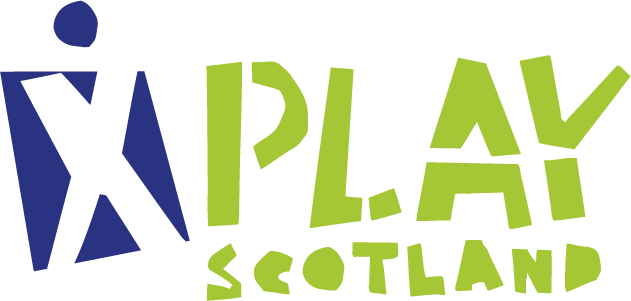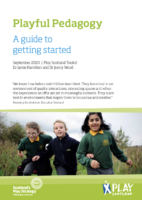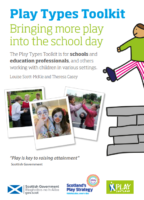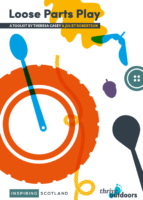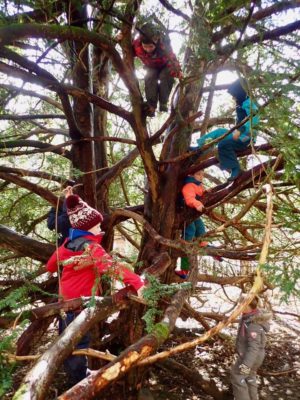
“We know how babies and children learn best. They learn best in an environment of quality interactions, interesting spaces and when the experiences on offer are set in meaningful contexts. They learn best in environments that inspire them to be curious and creative.”
Realising the Ambition, Education Scotland
What is Play Pedagogy?
Play Pedagogy is a way of integrating children’s play experiences with curricular learning, giving pupils the flexibility to find their own solutions to both new and existing problems. It engages children in personally meaningful activities, learning about themselves and others, and encourages autonomy and their independent motivation-to-learn.
Learning Adventures. Play Pedagogy is facilitated by teachers by something we term a “learning adventure”, the goal of which is to enable whole classes, and every individual child within it, to determine their own learning goals and pathways while remaining within the framework of the Early Years Curriculum. When a school takes the whole-team approach to playful pedagogy, this can be a Learning Adventure which involves everyone: pupils, teachers and parents.
Government-endorsed. As well as having an enormous weight of evidence to support it, the approach is strongly endorsed and supported by The Scottish Government’s guidance and priority policy objectives, as articulated in Realising the Ambition.
This evidence-backed approach to teaching and learning has five aspects which help children flourish: Active Learning; Social Interactive; Iterative; Joyful; and Meaningful.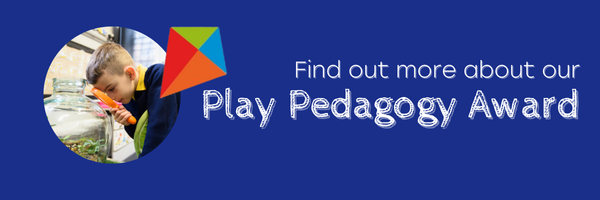
Why Play Pedagogy
Health and Wellbeing
Play is a foundation of Health and Well-being, linking with all SHANARRI principles. Playful Pedagogy is especially linked with Active, Respected and Responsible as it tends to be more active than traditional approaches, gives children a chance to direct their own learning, and also to try on different roles and responsibilities. It helps link education with all aspects of the GIRFEC ‘My World Triangle’.
The Four Capacities
Playful Pedagogy fits neatly with the Scottish Government’s four capacities:
Successful Learners: Closing the attainment gap is a policy priority, and lack of play has been linked with poorer educational outcomes. Evidence shows the relationship between meaning and perception, developed through play, both underpins and contributes to formal learning and attentional development. P1-P3 spans a critical stage where through play, children develop the ability to think, reflect and reason, separately from the world of objects around them.
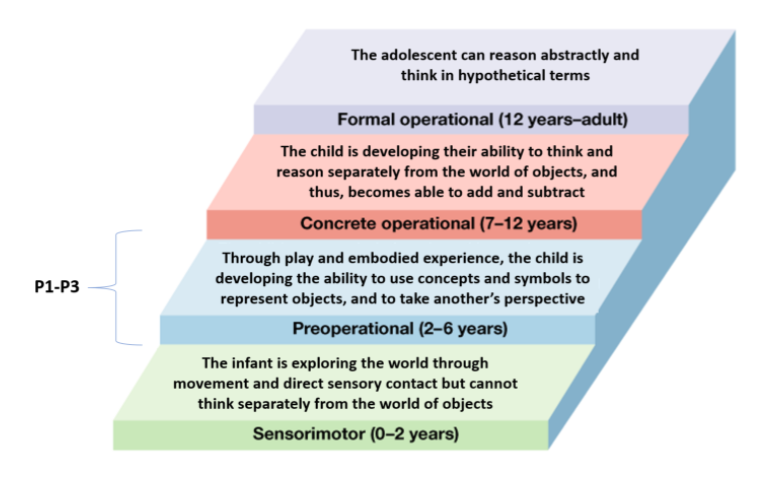
Confident Individuals: Social Determination Theory demonstrates that our confidence grows through tasks which support our autonomy, enable personally meaningful activity, and help us feel connected to others. Playful Pedagogy enables all of these as part of the formal learning process.
Responsible Citizens: Psychological theories tells us that play is fundamental to the development of social skills, perspective-taking, empathy, and understanding of social/cultural rules. Playful Pedagogy helps us understand our own and other people’s responsibilities.
Effective Contributors: Through Playful Pedagogy children learn to collaborate and cooperate with one another; this positive interdependence promotes learning and motivation. It has a particularly strong effect on children in need of additional support and works best when it involves pupils with adults and wider communities.
Learning for Sustainability
“Learning for Sustainability is a cross-curricular approach to creating coherent, rewarding and transformative learning experiences. It’s all about learners, educators, schools and their wider communities building a socially-just, sustainable and equitable society. It supports an effective whole-school and community approach by weaving together global citizenship, sustainable development education, and outdoor learning.”
Learning for Sustainability Webpage, Education Scotland
Through Play Pedagogy, pupils engage in wide-ranging projects, learning about themselves, others, the place they live and their contribution to society now and in the future. It is very effective in aiding understanding of human rights, as embedded in the Curriculum for Excellence (CfE) and Rights Respecting Schools aims. For instance, through Play Pedagogy, pupils are automatically introduced to Experience & Outcome (E&O) SOC 1-18a:
I have participated in decision making and have considered the different options available in order to make decisions.
Barriers to Play Pedagogy
The biggest barrier to Play Pedagogy is often school systems and culture that were setup for a more traditional style of teaching and learning.
Common challenges or barriers teachers report are:
- The practicalities of managing a large class on open-ended activities, especially where there are diverse support needs.
- Preparing and resourcing suitable spaces and materials, alongside possible new paperwork burdens.
- Expectations and assumptions from management, colleagues, and parents about how children should be taught or assessed.
- Misconceptions about what play is, and the fundamental role it serves in formal learning.
Small steps can help you work towards addressing barriers. This begins with experimenting with Play Pedagogy, and then reflecting upon how systems and culture can be reoriented and adapted without creating additional burdens.
Key elements of this include:
- Building and sharing knowledge of the “why” of play pedagogy.
- Encouraging outdoor learning as this provides a motivating setting with a free supply of loose materials.
- Developing a suitable reporting and risk assessment framework which doesn’t put teachers off from trying.
- Exploring approaches to design and management that give teachers flexibility to support each other on the learning adventure.
- Planning collectively for bigger changes to ensure a one-team approach, with training and support needs identified.
Parents often have the strongest opinions about how their child should be educated. Therefore, you might want to build your playful pedagogical confidence, knowledge and experience before involving them directly in learning adventures. However, once you do, it may be the best way to convince them of its value.
Ways of bringing sceptical parents on the learning adventure might be:
- Directing them towards the weight of evidence and stakeholder support for the approach, and its relationship to attainment.
- Point out that countries which employ Play Pedagogy, and don’t focus on formal literacy and numeracy until older years, generally perform better than the UK on both.
- Ask parents about how they learn best and use this as a starting point to explore the impact of choice, collaboration, and self-expression on their motivation.
- Stress your responsibility is not to individual pupils, but to the whole class. Play Pedagogy is the best way of creating a one-team approach where no one gets left behind. The learning benefits for their child will become more and more apparent with time.
Overall, thinking about adapting the broader context is a learning adventure itself. It involves the whole school: management, pupils, teachers, and parents. It begins with small steps but engages everyone in reorienting school systems to enable and support best practice.
Play Scotland Resources to support Play Pedagogy in Primary Schools
